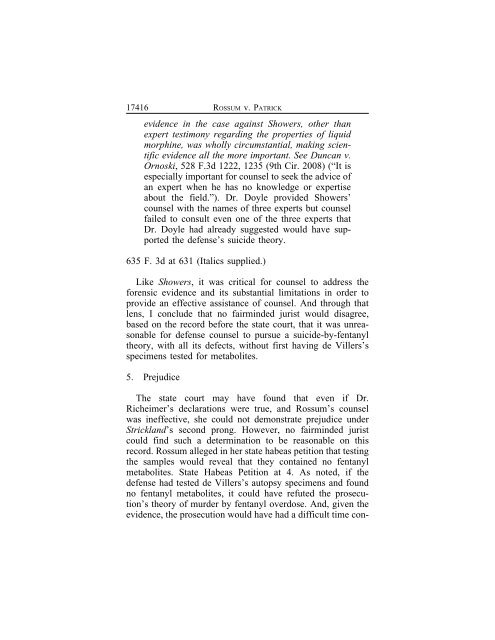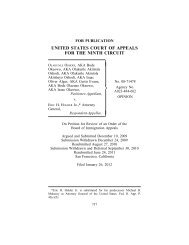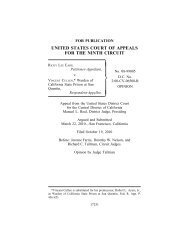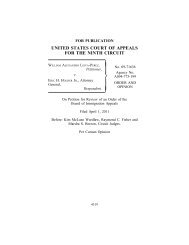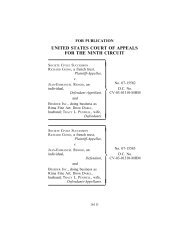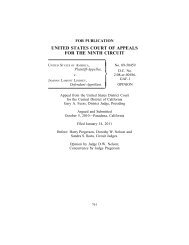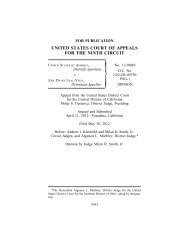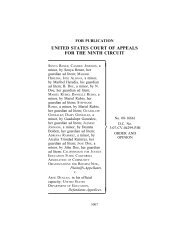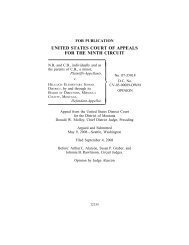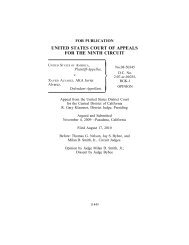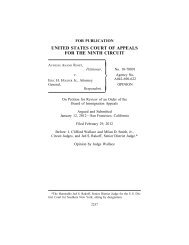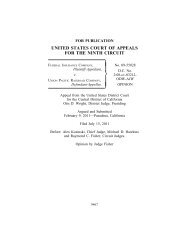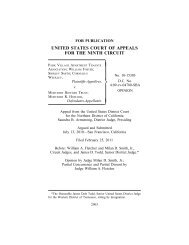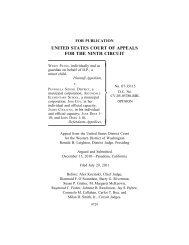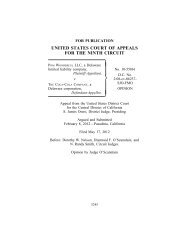kristin rossum v. deborah patrick - Ninth Circuit Court of Appeals
kristin rossum v. deborah patrick - Ninth Circuit Court of Appeals
kristin rossum v. deborah patrick - Ninth Circuit Court of Appeals
You also want an ePaper? Increase the reach of your titles
YUMPU automatically turns print PDFs into web optimized ePapers that Google loves.
17416 ROSSUM v. PATRICK<br />
evidence in the case against Showers, other than<br />
expert testimony regarding the properties <strong>of</strong> liquid<br />
morphine, was wholly circumstantial, making scientific<br />
evidence all the more important. See Duncan v.<br />
Ornoski, 528 F.3d 1222, 1235 (9th Cir. 2008) (“It is<br />
especially important for counsel to seek the advice <strong>of</strong><br />
an expert when he has no knowledge or expertise<br />
about the field.”). Dr. Doyle provided Showers’<br />
counsel with the names <strong>of</strong> three experts but counsel<br />
failed to consult even one <strong>of</strong> the three experts that<br />
Dr. Doyle had already suggested would have supported<br />
the defense’s suicide theory.<br />
635 F. 3d at 631 (Italics supplied.)<br />
Like Showers, it was critical for counsel to address the<br />
forensic evidence and its substantial limitations in order to<br />
provide an effective assistance <strong>of</strong> counsel. And through that<br />
lens, I conclude that no fairminded jurist would disagree,<br />
based on the record before the state court, that it was unreasonable<br />
for defense counsel to pursue a suicide-by-fentanyl<br />
theory, with all its defects, without first having de Villers’s<br />
specimens tested for metabolites.<br />
5. Prejudice<br />
The state court may have found that even if Dr.<br />
Richeimer’s declarations were true, and Rossum’s counsel<br />
was ineffective, she could not demonstrate prejudice under<br />
Strickland’s second prong. However, no fairminded jurist<br />
could find such a determination to be reasonable on this<br />
record. Rossum alleged in her state habeas petition that testing<br />
the samples would reveal that they contained no fentanyl<br />
metabolites. State Habeas Petition at 4. As noted, if the<br />
defense had tested de Villers’s autopsy specimens and found<br />
no fentanyl metabolites, it could have refuted the prosecution’s<br />
theory <strong>of</strong> murder by fentanyl overdose. And, given the<br />
evidence, the prosecution would have had a difficult time con-


